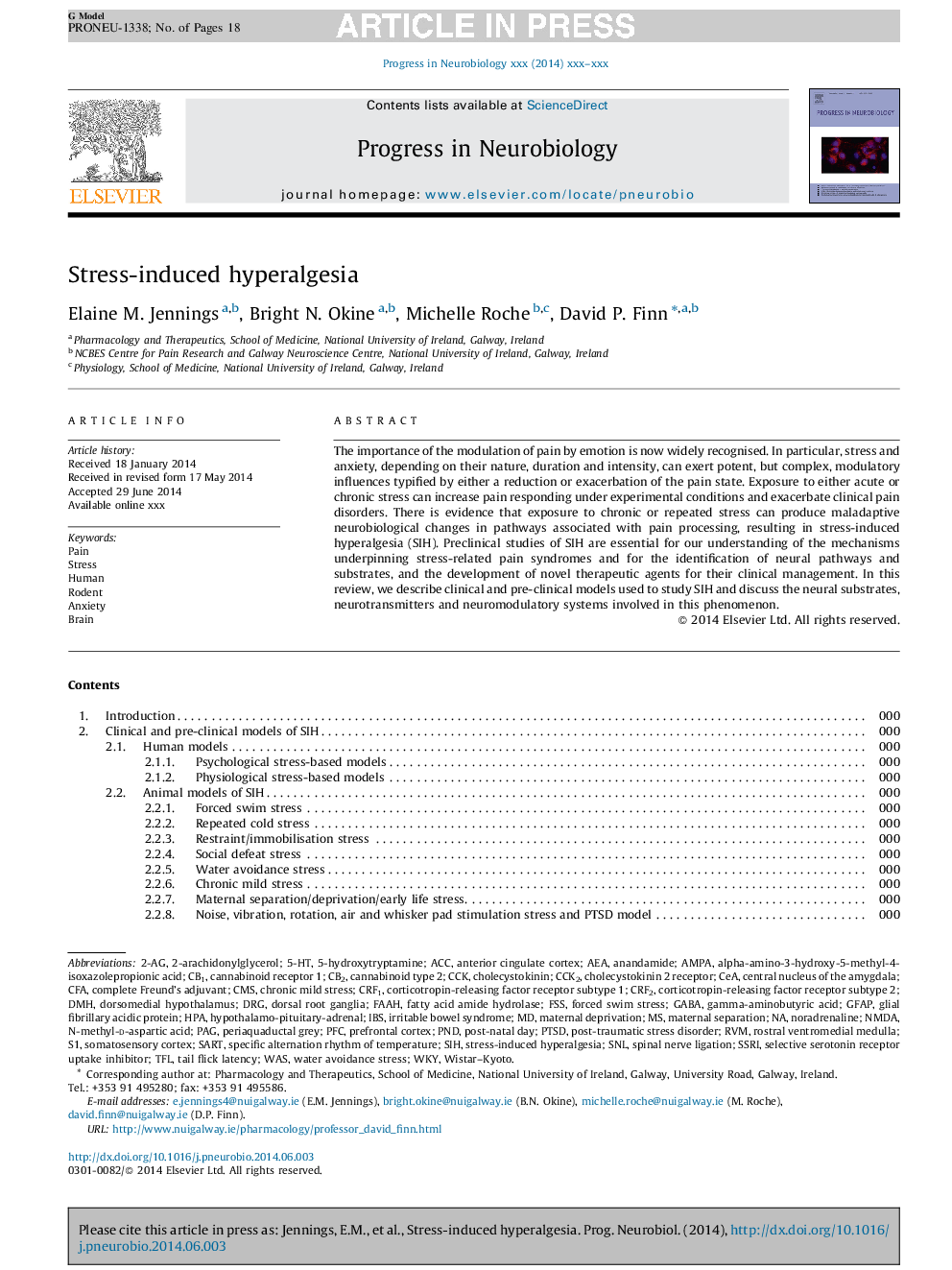| Article ID | Journal | Published Year | Pages | File Type |
|---|---|---|---|---|
| 6286479 | Progress in Neurobiology | 2014 | 18 Pages |
Abstract
The importance of the modulation of pain by emotion is now widely recognised. In particular, stress and anxiety, depending on their nature, duration and intensity, can exert potent, but complex, modulatory influences typified by either a reduction or exacerbation of the pain state. Exposure to either acute or chronic stress can increase pain responding under experimental conditions and exacerbate clinical pain disorders. There is evidence that exposure to chronic or repeated stress can produce maladaptive neurobiological changes in pathways associated with pain processing, resulting in stress-induced hyperalgesia (SIH). Preclinical studies of SIH are essential for our understanding of the mechanisms underpinning stress-related pain syndromes and for the identification of neural pathways and substrates, and the development of novel therapeutic agents for their clinical management. In this review, we describe clinical and pre-clinical models used to study SIH and discuss the neural substrates, neurotransmitters and neuromodulatory systems involved in this phenomenon.
Keywords
RVMFSSAMPASNLCCKCB1NMDAPAGCMS2-arachidonylglycerol5-HTFAAHCB2N-methyl-d-aspartic acidCRF2CRF1WKYSARTSIHCCK22-AGPNDGFAPPFCTFLAEADMHDRG5-hydroxytryptamineCFAIBSACCcomplete Freund's adjuvantCeAanandamidepost-traumatic stress disorderPTSDwater avoidance stressForced swim stresschronic mild stressStressalpha-amino-3-hydroxy-5-methyl-4-isoxazolepropionic acidFatty acid amide hydrolasegamma-aminobutyric acidAnxietyHumanWASmaternal separationRodentPainpost-natal dayrostral ventromedial medullatail flick latencyirritable bowel syndromeprefrontal cortexSomatosensory cortexanterior cingulate cortexMaternal deprivationBrainSSRIHPAnoradrenalinecentral nucleus of the amygdalaStress-induced hyperalgesiahypothalamo-pituitary-adrenaldorsomedial hypothalamusWistar–KyotoGlial fibrillary acidic proteinspinal nerve ligationcholecystokinin 2 receptorcholecystokininGABAdorsal root gangliaCannabinoid receptor 1
Related Topics
Life Sciences
Neuroscience
Neuroscience (General)
Authors
Elaine M. Jennings, Bright N. Okine, Michelle Roche, David P. Finn,
